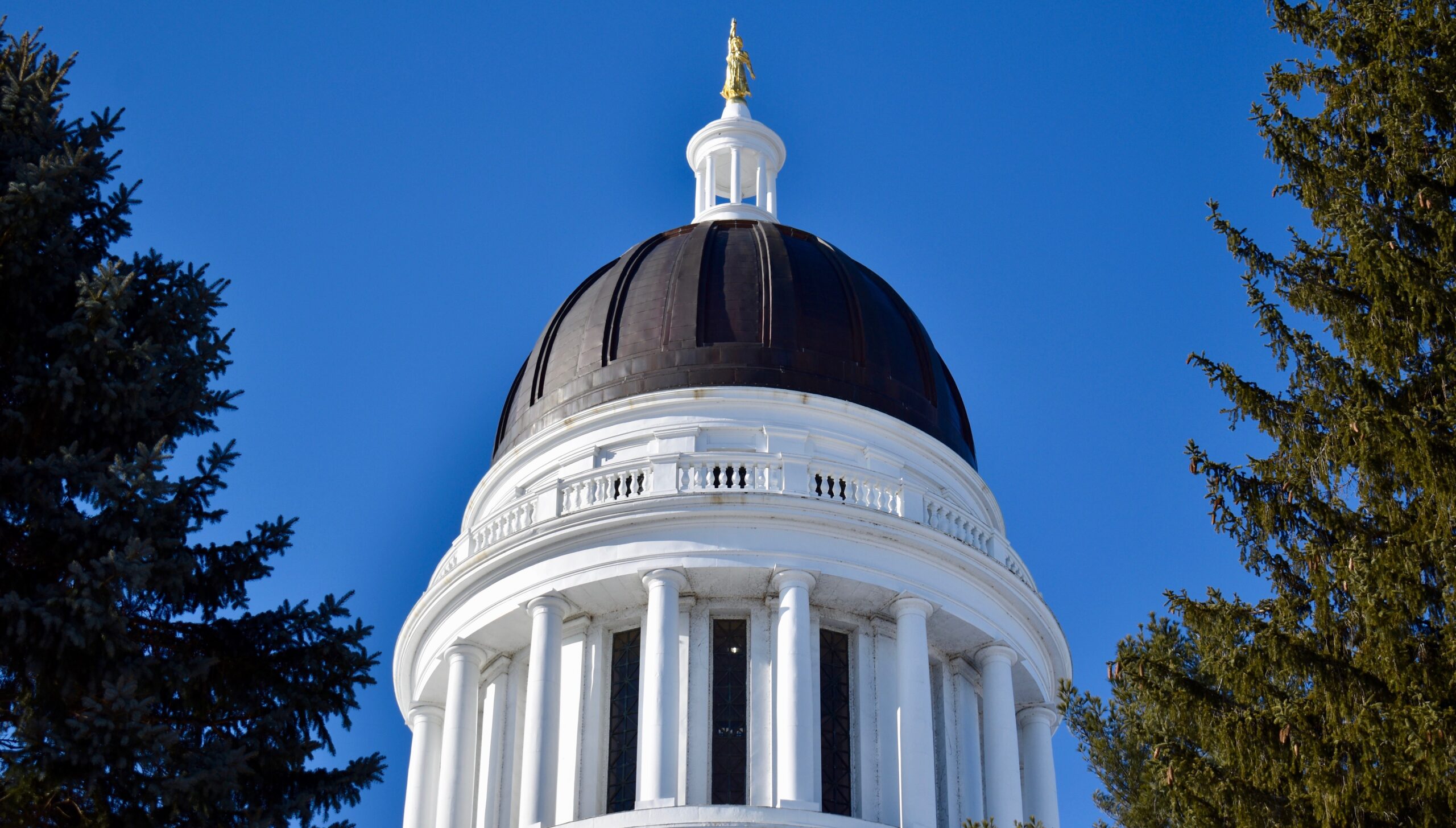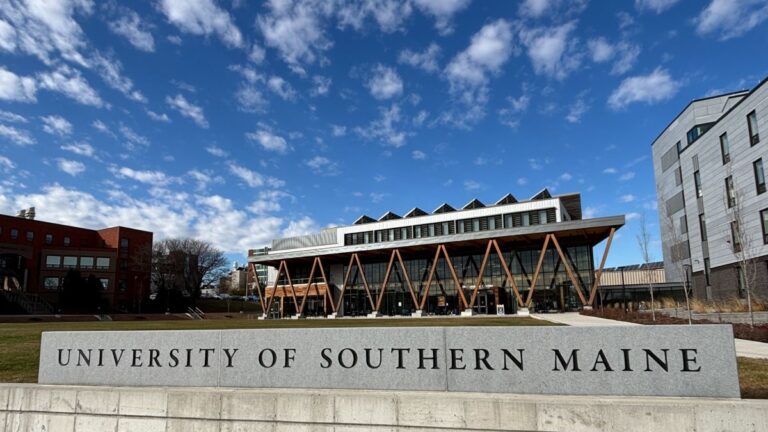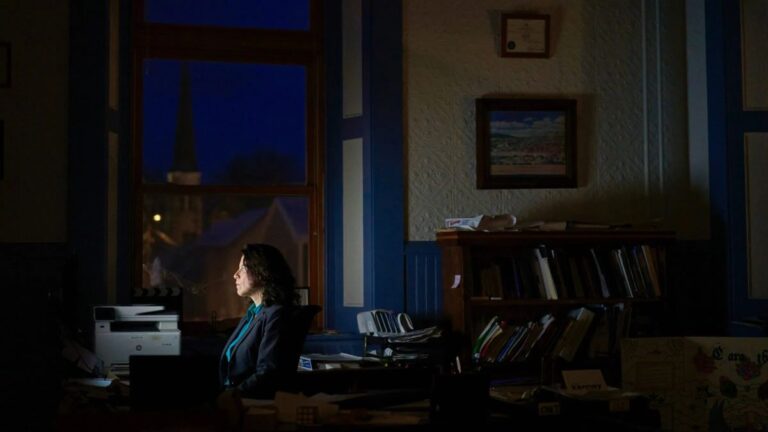The legislative session may not be over, but a number of significant bills have already been signed into law.
There have been messy fights over solar subsidies, long debates over mining and offshore wind and big changes to funding for Maine’s largest conservation fund.
Here’s a look at a few of the noteworthy pieces of legislation we’ve seen so far:
Offshore wind
After months of discussion and one Governor’s veto, the Committee on Appropriations and Financial Affairs endorsed a bill late Wednesday night designed to boost offshore wind development in the Gulf of Maine, a combination of three previous bills, one of which was vetoed by the Governor earlier this month.
“This is a major agreement for the state of Maine, to move us towards energy independence,” said Sen. Mark Lawrence, a Democrat from Eliot who is sponsoring the amended bill, according to Maine Public.
“And it’s really going to be three bills in one, bills from Senator Curry, Senator Brenner and myself, dealing with the procurement of offshore energy, but also creating a port facility in Maine for construction.”
The legislation directs the state to procure 3 gigawatts of electricity from offshore wind turbines by 2040. It includes protections for the fishing industry (not enough, however, to appease the Maine Lobstermen’s Association, which remains opposed to the bill) and language that will facilitate building an offshore wind port.
The proposal also allows for non-union companies to compete for contracts, leaving half the jobs for non-union employers like Maine’s Cianbro Corp., according to reporting by the Associated Press.
The labor protections were a sticking point for Governor Mills, who vetoed earlier legislation because it contained labor and wage protections that she said would have a “chilling effect” on Maine construction companies, as 90 percent of workers in the state’s construction industry are not unionized.
Sen. Lawrence said he was cautiously optimistic the bill would pass when it faces full votes in the House and Senate.
Solar
A thorny debate over how to fix Maine’s solar subsidies was settled — for now — after Governor Mills signed L.D. 1986 into law earlier this week. The legislation was supported by the several environmental advocacy groups and the solar industry and opposed by utility companies and the state’s Public Advocate William Harwood, who were in favor of a competing bill that would have set a cutoff date later this year for new entrants into the program.
The details are complicated (read the final version of the law), but the legislation limits participation in the state’s four-year-old net energy billing program to smaller projects (between 1 and 2 megawatts) that meet certain criteria and larger ones (less than 5 megawatts) that are “collocated” with all of the project’s customers, who are also “subscribed to 100% of the facility’s output.” (Current law allows developers to build solar farms — often called “community solar projects” — and recruit buyers for the energy output from elsewhere in the state.)
The new law also directs the state to seek federal money to incentivize solar development and requires annual reporting on the costs and benefits of NEB, which allows participating customers (like those who install rooftop solar or buy in to a community solar project) to offset their electricity bills by getting credits for the energy they send into the grid.
The program has faced criticism in recent years from some who say it’s benefiting few ratepayers at the expense of many and shifting costs onto low-income electricity customers in particular. Proponents say that focusing only on the cost of subsidies ignores the impact of volatile natural gas and fossil fuel prices on the price of electricity and the social and economic benefits of transitioning away from fossil fuels.
Lawmakers also approved new rules directing companies to recycle solar panel components, when possible, and the creation of a new ombudsman position to help track and manage disputes between developers and utilities around hooking projects up to the grid, which has been struggling to handle the influx.
Mining
As you already know if you’ve been following this newsletter, Governor Mills signed a law that cracks open the door to amending Maine’s strict mining laws and extracting a sizeable lithium deposit in Newry by allowing larger open pit mines than the current three acre limit. The law isn’t the last word, however — the changes will have to go through an extensive rulemaking process with the Maine Department of Environmental Protection, which could take years.
“I was incredibly hesitant to suggest any changes to the mining act,” said DEP Commissioner Melanie Loyzim during a recent work session on the bill. But, she continued, “it became obvious what we had been thinking about all those years when we worked on the rule that we just hadn’t been thinking big picture enough.”
The legislature also resolved to study the state’s mining excise tax, which DEP staff have said is out-of-date and needs to be updated.
Aroostook County transmission line
Governor Mills signed off on a law authorizing construction of a new, high-voltage transmission line that would send upwards of 1,200 megawatts of energy from a proposed 179-turbine wind farm in Aroostook County nearly 160 miles, to Pittsfield, just north of Augusta. It would be the largest onshore wind project east of the Mississippi River, if built, according to the Portland Press Herald, generating enough electricity to power 450,000 homes. A little less than half of the power would be purchase by utilities in Massachusetts (40 percent), while the rest would be bought by Maine companies.
The project is still a long ways from being in operation, as developers need permits from several state agencies, which will likely take years. The first public meeting on the plans was held on Tuesday in Mattawamkeag, and many who attended were skeptical, according to reporting by Maine Public, raising similar concerns to those that arose around the contentious western Maine corridor project.
Bottled water
New rules will require bottled water companies to monitor and report on PFAS contamination and prohibit them from selling water with levels exceeding state and federal standards. (The parent company of Poland Springs says the company is already testing for 18 different PFAS compounds and supports a new, stricter standard for contamination recently set by the EPA.)
Trash
The Governor also signed legislation to extend renewable energy credits for waste-to-energy facilities, which companies get by selling the electricity they generate by burning trash. Plant operators, including the nonprofit ecomaine, which runs one of the state’s three WTE plants (one plant is up for auction and is currently idled), argue that the credits are “fundamental” to the plant’s operation and pay for maintenance and refurbishment of key components.
A separate bill to reestablish annual reporting on solid waste became law without the Governor’s signature last month. Municipalities currently report to the DEP on trash collection every two years; this will increase reporting starting in 2026.
That’s not all…
Lawmakers were very busy this spring, and that’s just a handful of the bills that passed — we also saw new laws encouraging renewable energy development on agricultural land contaminated by PFAS, prohibiting utilities from recovering lobbying expenses from ratepayers, banning the sale of certain lead fishing jigs (to protect loons), and prohibiting waste discharges into the Lower Presumpscot river, as well as big changes to the way state conservation funds are managed that advocates say will make funding more consistent and self-sustainable.







